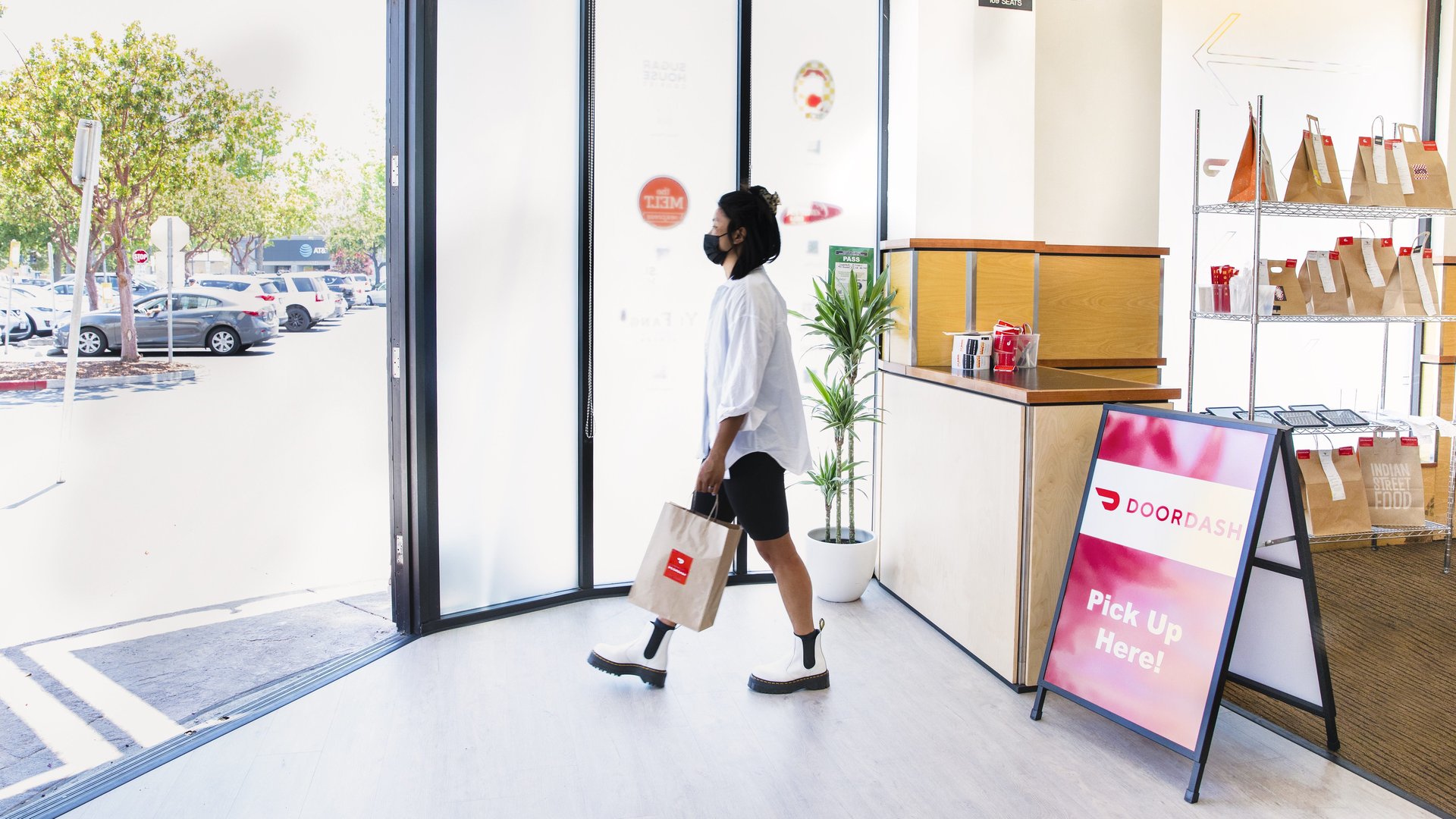DoorDash isn’t just delivering meals—it’s making them, too
DoorDash wants to make your food.


DoorDash wants to make your food.
The food delivery company is opening a temporary kitchen where it will make meals for six restaurants in San Jose, California. The six restaurant partners are Aria Korean Street Food, Canter’s Deli, Milk Bar, Curry Up Now, The Melt Express, and YiFang Taiwan Fruit Tea; the food will be available for pickup and delivery.
DoorDash, based in Palo Alto, California, says it will work with restaurant partners to learn how to cook their food, reproduce their recipes, recreate their supply chains, and secure the chefs, on top of providing the usual marketing and delivery. The kitchen, which is something of an experiment for the company, will last until November.
If the trial is successful, DoorDash may expand the concept. Once it is up and running, restaurants could ask DoorDash to launch their take-out operations in any region and the food delivery company will make it happen for them, says Ruth Isenstadt, the director of DoorDash Kitchens.
So-called ghost kitchens—which are essentially restaurants without a storefront—are a burgeoning business. Pre-pandemic, they were expected to account for 10% to 15% of the $66 billion US restaurant industry by 2025. Now that number is expected to climb to 21%, according to a May report from CBRE, a real estate firm. The facilities allow restaurants to expand their footprint in a low-cost and flexible way, without the costly real estate and labor required of customer-facing locations.
Ghost kitchens are an emerging model
When DoorDash launched its first ghost kitchen in 2019 in Redwood City, California, restaurants weren’t yet familiar with the concept, says Isenstadt. But in the past year, more restaurants have been reaching out to DoorDash to learn more about how the company can support the delivery operations they’ve built up during the pandemic. Other restaurants are interested in using the ghost kitchen to try out a new market.
But ghost kitchens haven’t had much uptake with US-based food delivery companies yet, since it’s a new business model. Outside the US, the model is more established with food delivery companies like Deliveroo, in the UK, as well as Zomato and Swiggy in India, with the latter hosting 1,000 ghost kitchens in 14 cities.
🎧 For more intel on global food trends, listen to the Quartz Obsession podcast episode on fish sticks. Or subscribe via: Apple Podcasts | Spotify | Google | Stitcher.
If DoorDash is successful with this model, it will help create closer relationships with restaurants while also allowing the food delivery company, which remains unprofitable, to take a larger slice of restaurant sales. When delivery workers are able to pick up multiple orders from one place rather than various restaurants, it could also potentially maximize the number of delivery orders performed per hour, says Alex Frederick, a senior analyst at PitchBook, a research firm.
When DoorDash launched its first permanent ghost kitchen in Redwood City 2019, it started renting out individual kitchen spaces to restaurants who would operate the facilities themselves. But restaurants felt the costs of staffing and operating kitchens were still too high, says Isenstadt.
So DoorDash is now absorbing more of the costs, as it essentially takes on the full end-to-end operations. With most of the restaurants partners, DoorDash takes a share of their revenue.
The evolving food delivery market
Globally, food delivery is a $127 billion industry. In the US, companies are expanding their businesses with the hopes of reaching profitability some day. For instance, Uber Eats, which began offering flower delivery in the US this week, is trying to position itself as delivering everything in a short amount of time. DoorDash, on the other hand, has expanded into physical spaces in other ways, such as virtual convenience stores called DashMarts, which are micro fulfillment centers that sell essential goods delivered by the company in at least nine cities. DoorDash still carries the majority of the US food delivery monthly sales last month, according to data from Bloomberg Second Measure, a research company.
Even as DoorDash enters food preparation, it could face competition from big players including Walmart, which is experimenting with virtual food courts in its Canadian stores.